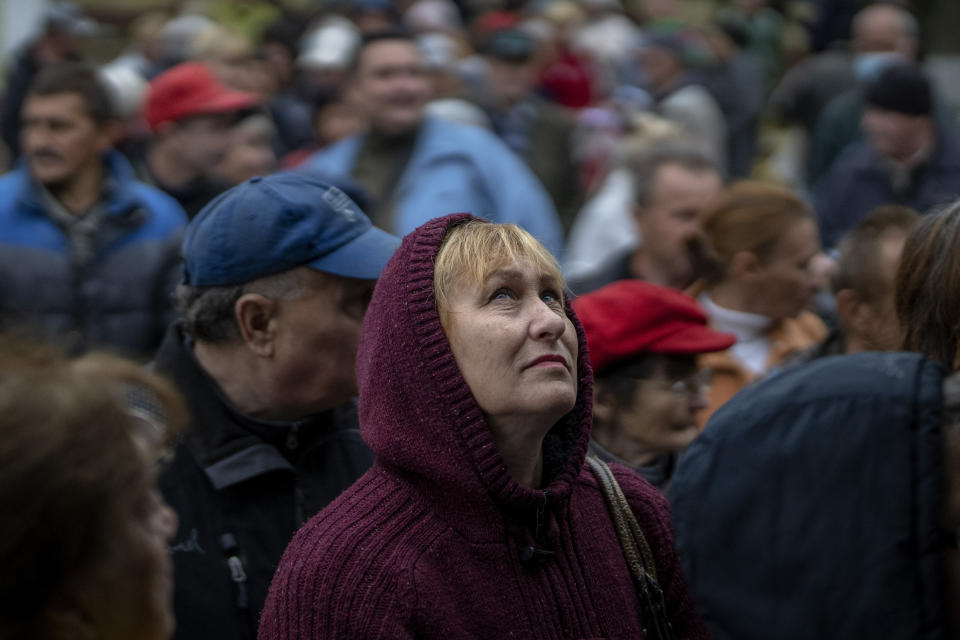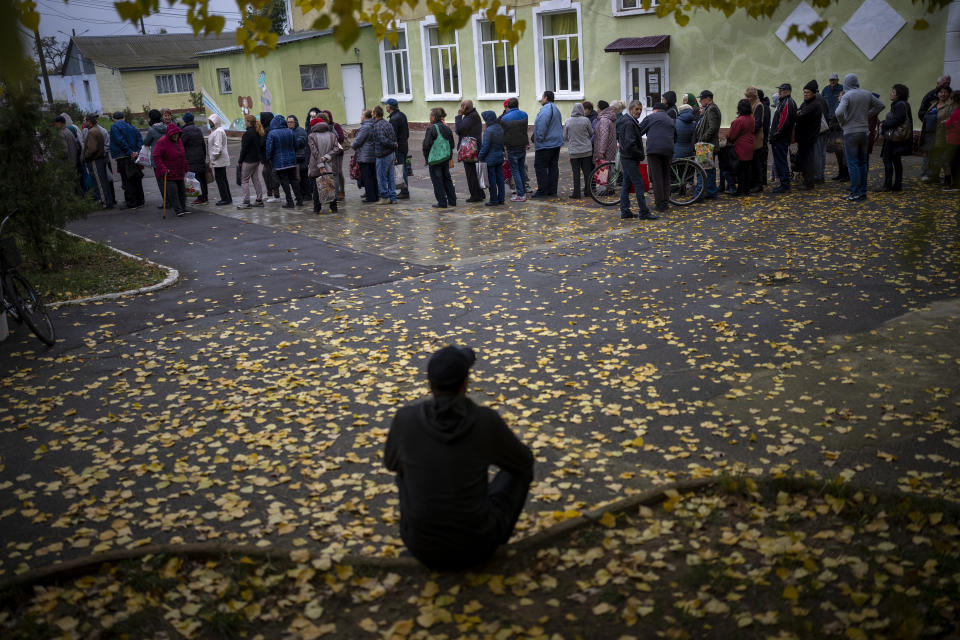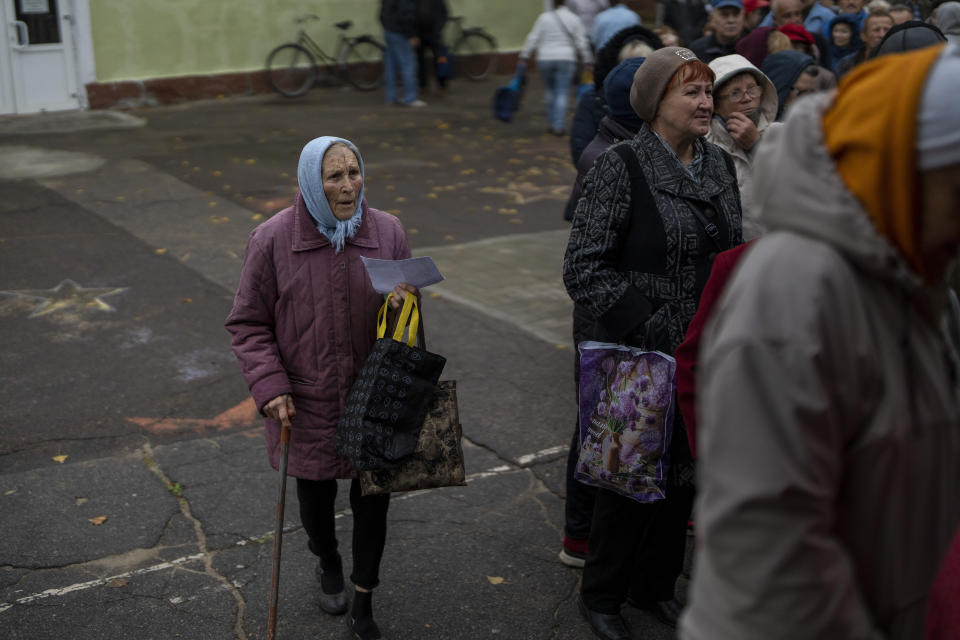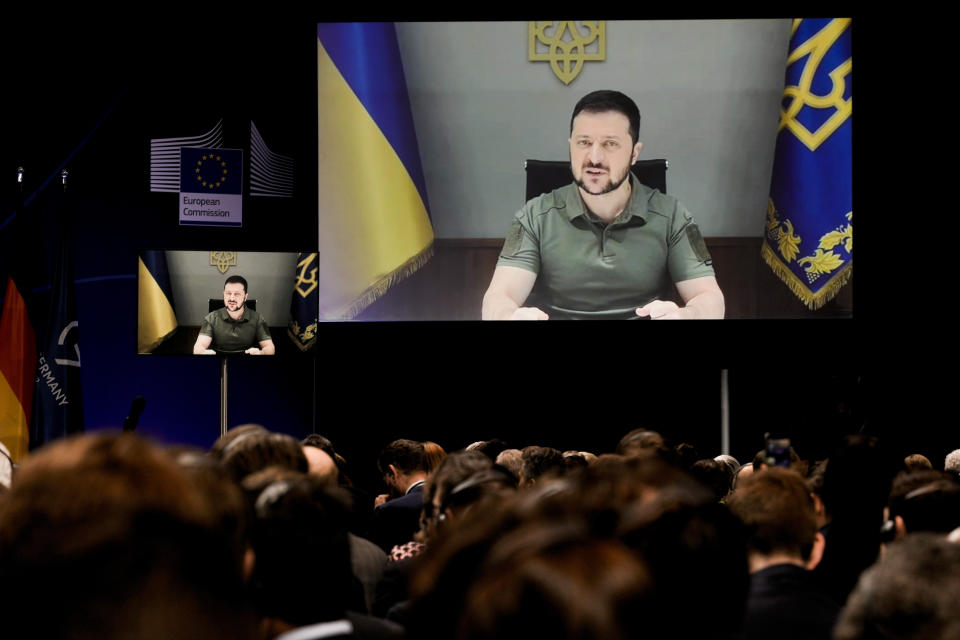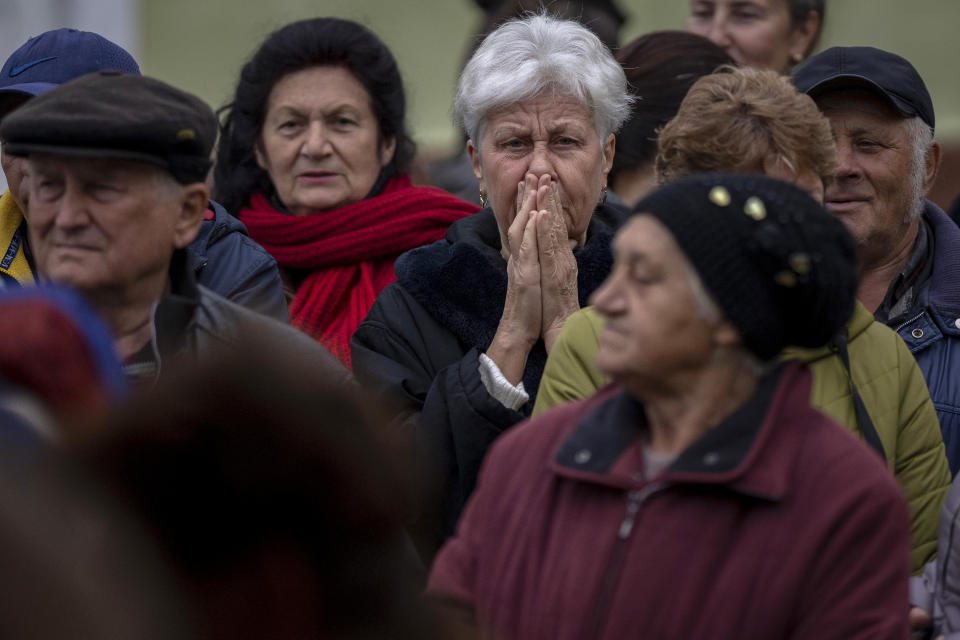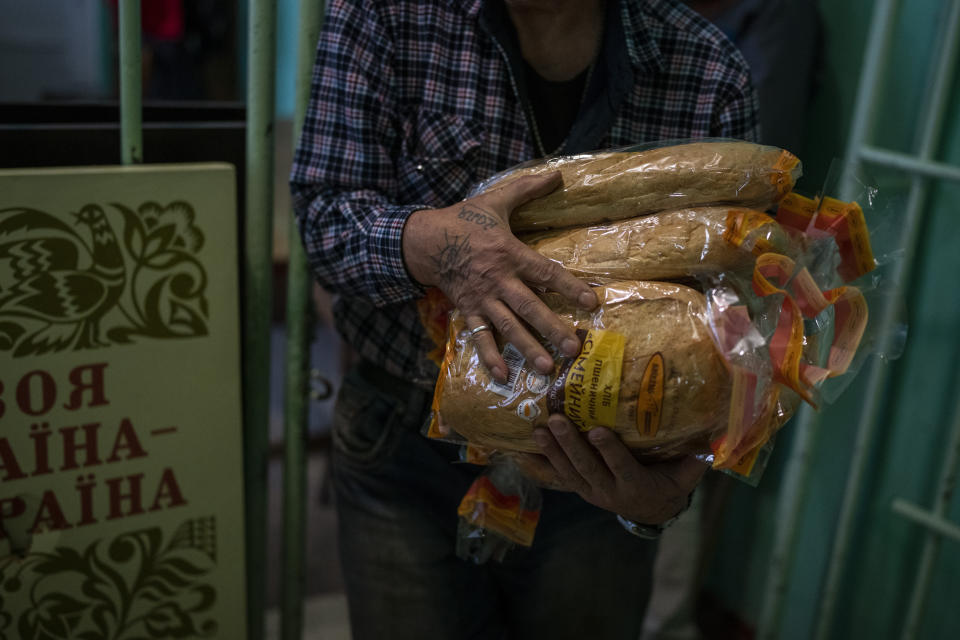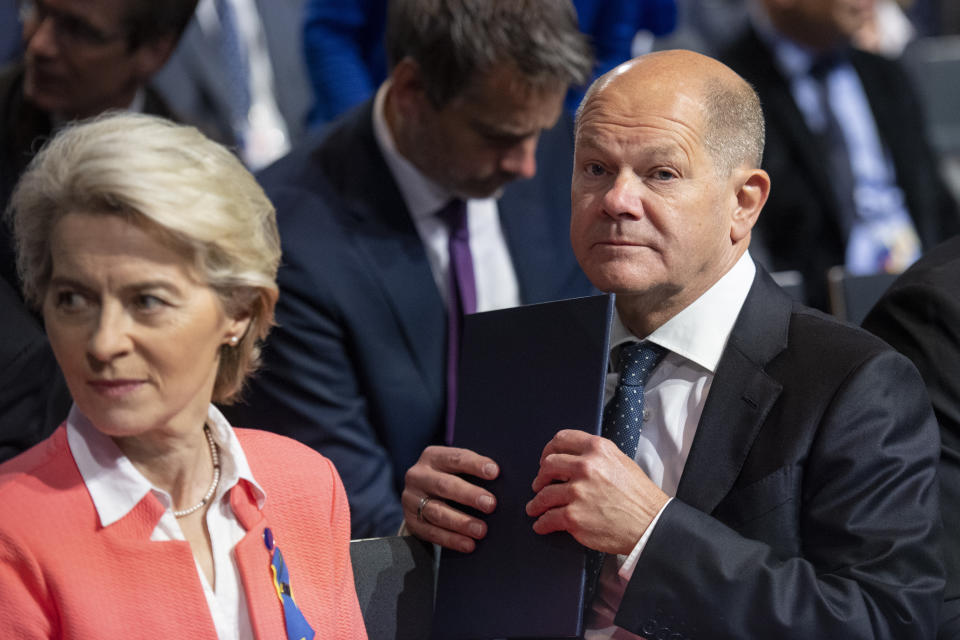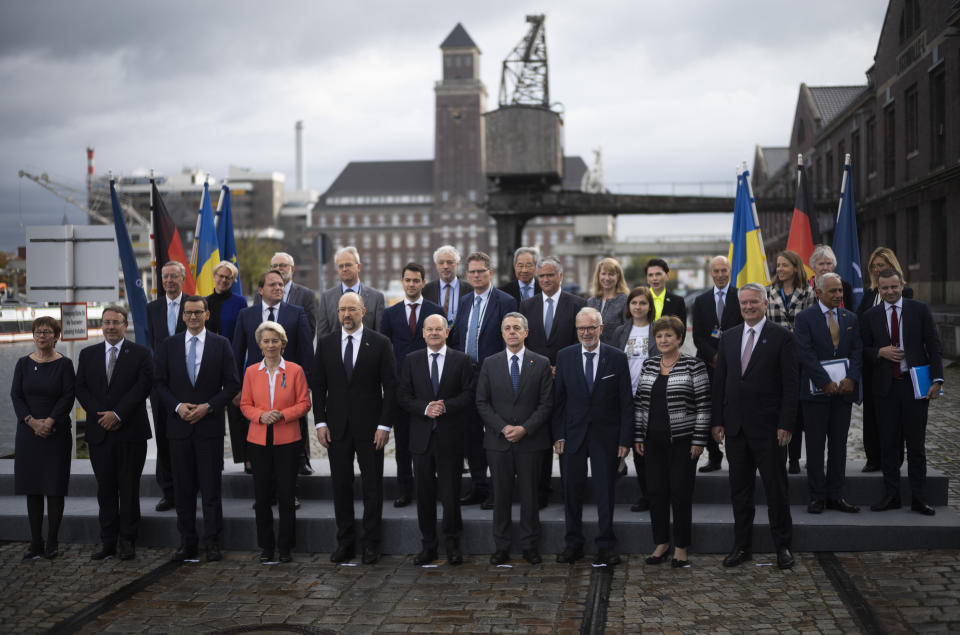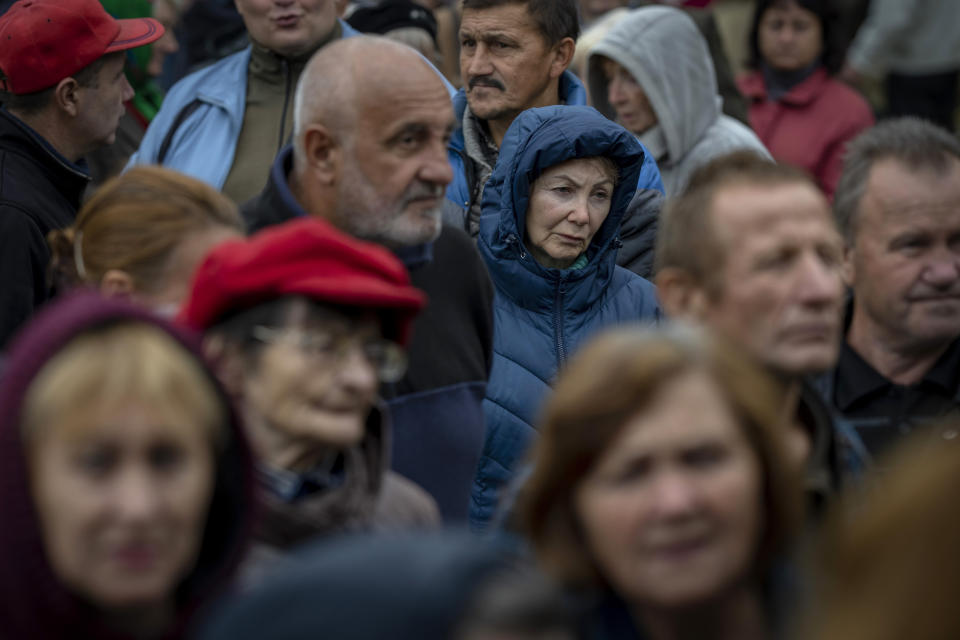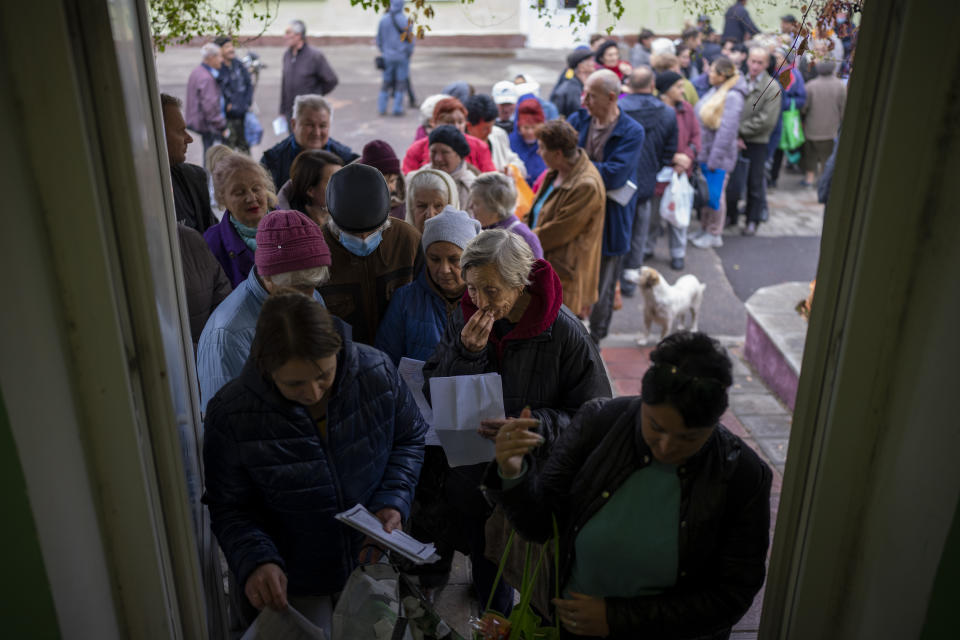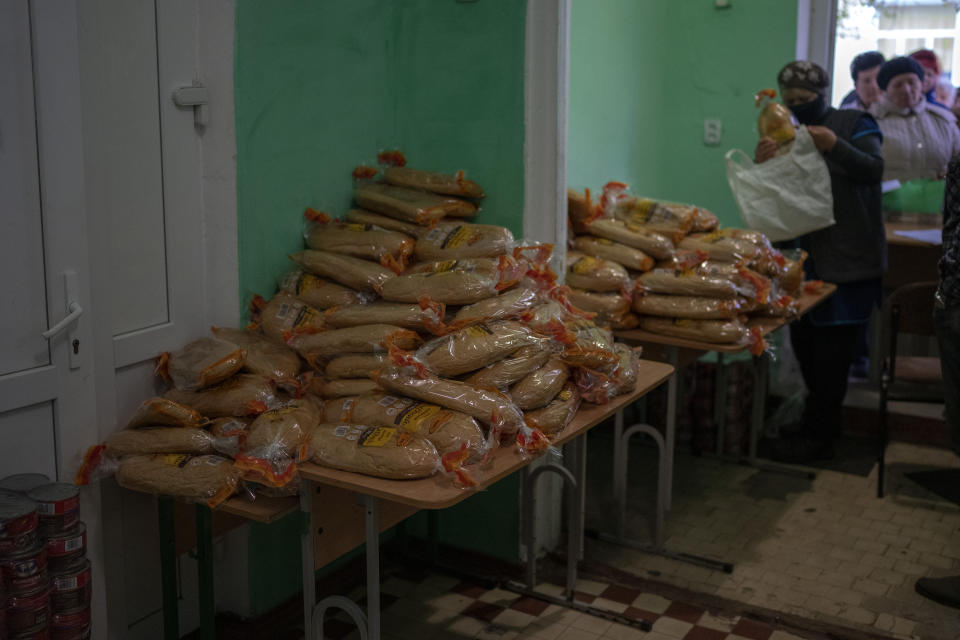Putin scrambles to boost weapons production for Ukraine war
- Oops!Something went wrong.Please try again later.
KYIV, Ukraine (AP) — Russian President Vladimir Putin, facing bureaucratic delays and mounting losses, urged his government Tuesday to cut through bureaucracy to crank out enough weapons and supplies to feed the war in Ukraine, where a Western-armed Ukrainian counteroffensive has set back Russia’s forces.
In other developments, Ukrainian authorities asked citizens not to return home and further tax the country’s battered energy infrastructure, and Western countries mulled how to rebuild Ukraine when the war ends.
The Russian military’s shortfalls in the eight-month war have been so pronounced that Putin had to create a structure to try to address them. On Tuesday, he chaired a new committee designed to accelerate the production and delivery of weapons and supplies for Russian troops, stressing the need to “gain higher tempo in all areas.”
Russian news reports have acknowledged that many of those called up under a mobilization of 300,000 reservists Putin ordered haven’t been provided with basic equipment such as medical kits and flak jackets, and had to find their own. Other reports have suggested that Russian troops are increasingly forced to use old and sometimes unreliable equipment and that some of the newly mobilized troops are rushed to the war front with little training. Last week, Putin tried to show all is well by visiting a training site in Russia where he was shown well equipped soldiers.
To substitute for increasingly scarce Russian-made long-range precision weapons, Britain’s Ministry of Defense said Russia was likely to use a large number of drones to try to penetrate Ukrainian air defenses. Russia’s “artillery ammunition is running low,” the British report said Tuesday.
The Institute for the Study of War, in Washington, added that “the slower tempo of Russian air, missile, and drone strikes possibly reflects decreasing missile and drone stockpiles and the strikes’ limited effectiveness of accomplishing Russian strategic military goals.”
The Russian military has still managed to inflict heavy damage and casualties, ruining homes, public buildings and Ukraine's power grid. The World Bank estimates the damage to Ukraine so far at 350 billion euros ($345 billion).
Recent Russian attacks have focused largely on Ukraine’s energy facilities, especially electricity generation and transmission. Electricity shortfalls are so severe that Ukrainian Deputy Prime Minister Irina Vereshchuk on Tuesday asked citizens living abroad not to return this winter to avoid placing further strain on the power supply.
“We need to survive the winter but, unfortunately, the (electricity) networks will not survive,” Vereshchuk said on Ukrainian television. “We understand that the situation will only get worse, and this winter we need to survive.”
In Berlin, European Union leaders brought together experts to work on a “new Marshall Plan” for rebuilding Ukraine — a reference to the U.S.-sponsored plan that helped revive Western European economies after World War II.
German Chancellor Olaf Scholz said the meeting is addressing “how to ensure and how to sustain the financing of the recovery, reconstruction and modernization of Ukraine for years and decades to come.”
Scholz, who co-hosted the meeting with European Commission President Ursula von der Leyen, said he’s looking for “nothing less than creating a new Marshall Plan for the 21st century — a generational task that must begin now.”
On the diplomatic front, German President Frank-Walter Steinmeier said after arriving in Kyiv that “it was important to me in this phase of air attacks with drones, cruise missiles and rockets to send a signal of solidarity to Ukrainians.” Later in the day he took cover in a bomb shelter after an air raid siren alerted a possible attack, according to local media.
The German president, whose position is largely ceremonial, made it to Ukraine on his third try.
In April, he was planning to visit with his Polish and Baltic counterparts, but said his presence “apparently … wasn’t wanted in Kyiv.” Steinmeier has been criticized in Ukraine for allegedly cozying up to Russia during his time as Germany's foreign minister. Last week, a planned trip was put off because of security concerns.
On the battlefront, residents of the southern city of Mykolaiv lined up for water and essential supplies Tuesday as Ukrainian forces advanced on the nearby Russian-occupied city of Kherson.
One of Moscow's allies on Tuesday urged Russia to step up the pace and scale of Ukraine’s destruction.
Ramzan Kadyrov, the regional leader of Chechnya who has sent troops to fight in Ukraine, urged Moscow to wipe off the map entire cities in retaliation for Ukrainian shelling of Russia’s territory. Authorities in Russia’s Kursk and Belgorod regions that border Ukraine have repeatedly reported Ukrainian shelling that has damaged infrastructure and residential buildings.
“Our response has been too weak,” Kadyrov said on his messaging app channel. “If a shell flies into our region, entire cities must be wiped off the face of the Earth so that they don’t ever think that they can fire in our direction.”
Kyiv wants to step up the fight, but says it needs more war materiel.
“We need more weaponry, we need more ammunition to win this war,” Ukrainian Prime Minister Denys Shmyhal told reporters in Berlin. He added: “We need tanks from our partners, from all of our partners; we need heavy armored vehicles, we need additional artillery units, howitzers.”
____
Follow AP’s coverage of the war in Ukraine: https://apnews.com/hub/russia-ukraine
